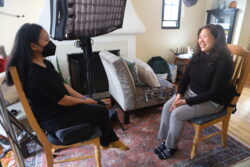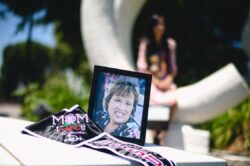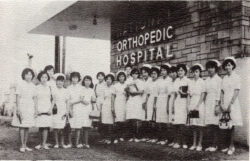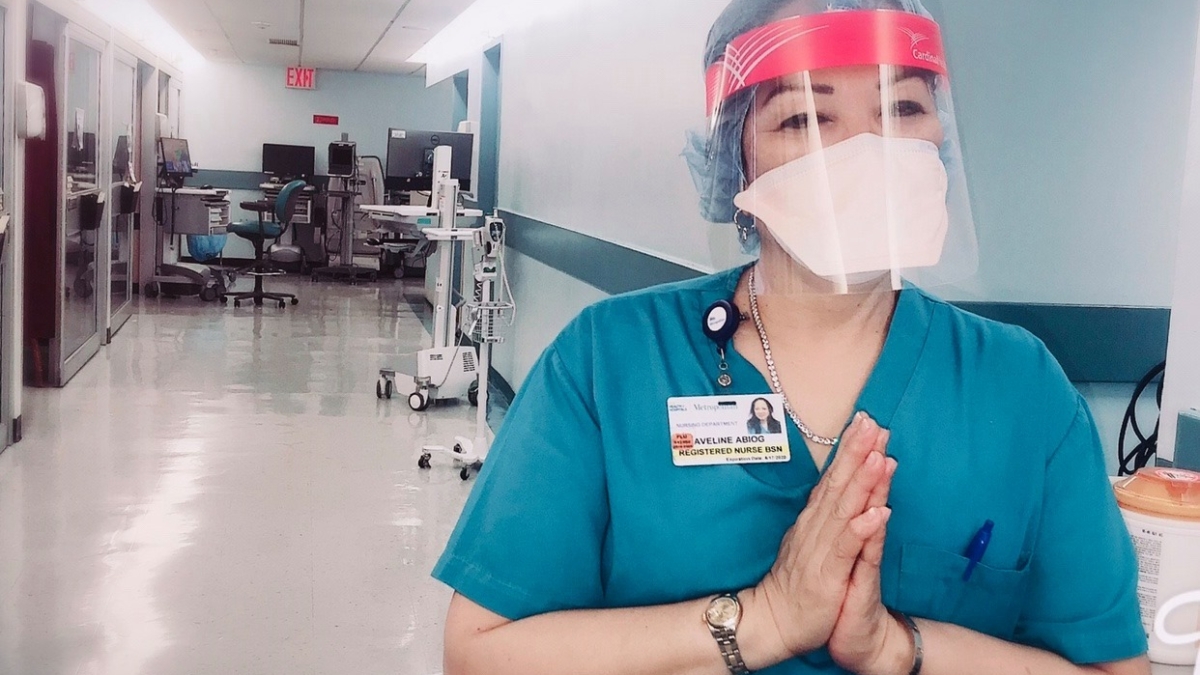Michele Josue highlights the virtually untold story of Filipino nurses
Stories of Filipino nurses are made visible in the documentary “Nurse Unseen” by Emmy award-winning documentarian Michele Josue. The 90-minute feature tells the stories of Filipino nurses working on the front lines of the COVID-19 pandemic, while also exploring the complicated history behind their vital presence in the American healthcare system. Nursing is a profession with deep ties to the Filipino community in the United States; walk into any hospital from California to New York, and Filipino nurses will be tending to the bedside.
Josue, who is Filipino American, said she envisioned the documentary as a way to pay tribute to nurses like her “tita” Dodo Cueva, who passed away several years ago. Cueva gave 30 years of service as an oncology nurse at the Children’s National Hospital in Washington, D.C., and Josue felt that her aunt’s devotion to nursing was taken for granted.
“When my aunt passed away many years ago, I, in the back of my mind, was always kind of contemplating a way in which I could pay homage to her, do her story justice. Over the years, I was frustrated by how underappreciated she was,” said Josue. “She devoted her entire life to caring for so many children, particularly children who suffered from leukemia and cancer. I remember when she retired, I don’t even think they threw her a little party. They just gave her a little certificate and an award.”
This intention is well-established in the first few minutes of the documentary; family photos and home videos show Tita Dodo as the loving, caring person her family remembers, while coworkers give testaments to her dedication to patients.

“Nurse Unseen” delivers a concise history of nursing in the Philippines and the Filipino diaspora through interviews with scholars of Asian American history. UC Berkley Professor and “Empire of Care” author Catherine Ceniza Choy, shed light onto the question of why so many Filipino Americans pursued careers in nursing.
Choy explained that U.S. colonizers saw nursing as a way of “civilizing” Filipinos during the occupation period from 1898 to 1946. The American nursing curriculum, advanced by white nurses and taught in English, essentially prepared Filipinos to care for U.S. soldiers fighting in World War II, as the Philippines was a strategic military base for the U.S. military in the Pacific.
Following the end of WWII and the Korean Armistice, the U.S. experienced a dire shortage of nurses. One clause in the 1965 Immigration and Naturalization Act aimed to take in skilled professionals from Asia and Latin America after decades of closed-door immigration policy. As a result, the latter part of the 20th century is when the U.S. saw an influx of Filipino nurses who are American-trained, proficient in English, and seeking to earn money for their families in the Philippines.
The documentary also touches on the fact that Filipino nurses were some of the most vulnerable during the COVID-19 pandemic, as administrative officials in charge of hospitals and healthcare facilities faced mixed messages from government officials regarding safety protocols throughout during the pandemic.
According to a March 2021 report published by National Nurses United, Filipinos make up only 4% of registered nurses in the United States, but make up 26.4% of registered nurses who have died of COVID-19 and related complications.

But behind these numbers, there are people who have families, loved ones, and friends. The film highlights the story of Rosary Castro-Olega, a Filipino nurse and one of the first healthcare workers in L.A. county to die from COVID-19. In “Nurse Unseen,” daughter Tiffany Olega shares her memories of Castro-Olega, a loving and understanding mother, and the most energetic person she knew.
With the rise of anti-Asian hate and general xenophobic attitudes towards Asian Americans stemming from the COVID-19 pandemic, Josue says that stories like “Nurse Unseen” are important to tell in the name of representation.

Josue is conscious of the fact that artistic representation is a collective effort, made up of completely different experiences. “I wanted to make a film that was really nuanced and specific to our community, and within that, the Filipino nursing community,” she said.
Josue is currently focused on telling stories of the Filipino diaspora and she is glad to see more opportunities for doing so, as today’s media landscape shines a brighter light on more nuanced stories and more complex AAPI characters who represent a broader view of the diaspora.
Josue remembers seeing Tia Carrere in “Wayne’s World” (1992) and becoming obsessed with it as her favorite movie because, she said, “it was the first time I had really seen a Filipino or someone who looked like me on screen.”
“A continual representation and honest understanding of our experiences is something that should always be brought up,” said Josue.
“Nurse Unseen” screened at the 46th Asian American International Film Festival.

